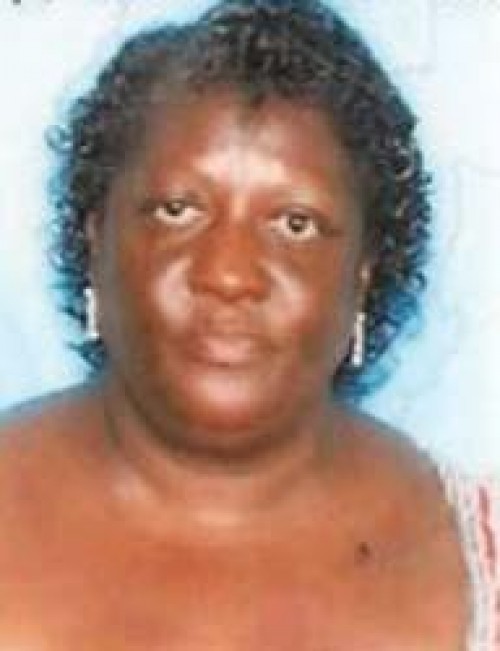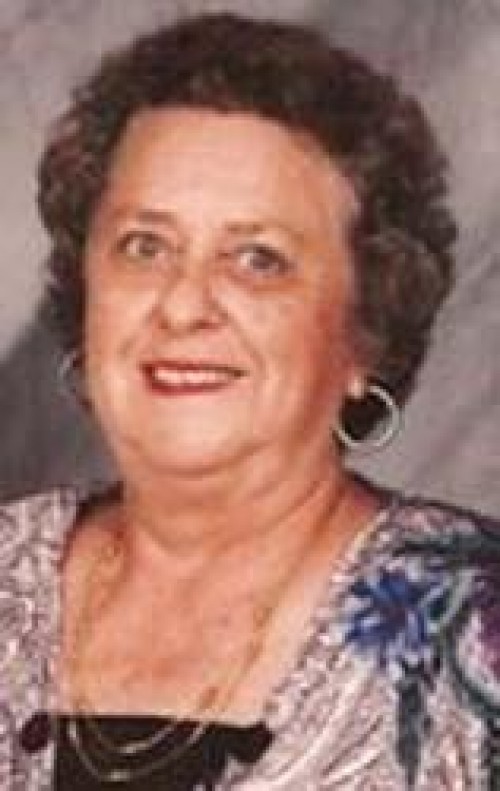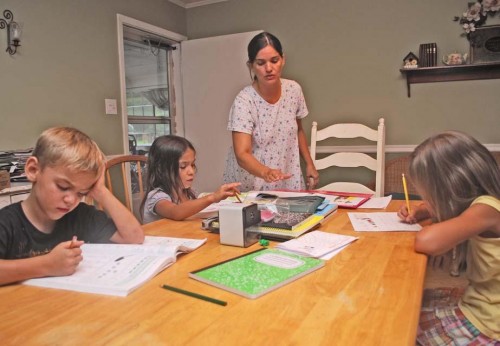
Rebecca Anna Lee Dorsey Williams
August 18, 2009
Jeanette A Bourgeois
August 20, 2009While nearly 45,000 students in the Tri-parishes left the house this morning for school, hundreds of other stayed behind to get their education.
Home schooling is becoming a popular alternative to public and private schools both nationally and locally.
National Center for Education figures show there are about 1.5 million children home-schooled in the U.S. Local advocates estimate there are roughly 600 families in Terrebonne and Lafourche parishes home-schooling their children.
Parents have various reasons for choosing to home school rather than send their children through the schoolhouse doors.
“If there is a common denominator, it’s that they don’t like the environment in the school system,” said Celeste Robichaux, cofounder of eLearningK12, a local Internet home- schooling company. “They’re concerned about peer pressure and bad influences on their kids.”
For Carrie Bourgeois, a former science teacher at Terrebonne High and Houma Christian School, it was a chance to spend more quality time with her children.
“When I started having children again, my older ones wanted to be home-schooled,” said the Schriever mother of 10. “I tried teaching one year while I had small children and I thought the school kids got the better part of my day. I figured if I can teach other kids, I can teach my own.”
eLearningK12 currently has 155 students, according to Robichaux. That’s up more than 40 students from last year. The company started with 30 students a decade ago.
Besides eLearningK12, in the Houma-Thibodaux area, there are three home-schooling groups – Bayou Area Christian Homeschoolers (50 families), Ave Marie Homeschoolers (35 families) and the Houma-Thibodaux Schoolers (40 families).
These groups are informal – mainly existing for parents to make announcements, plan field trips and other outings.
The biggest misconception about home-schooled children, according to local parents, is that they stay indoors and lack the ability to socialize. That couldn’t be further from the truth, they contend.
“We have monthly field trips. We do outings like a family picnic, ice skating and hiking,” Robichaux said. “Whenever we do a trip, the parents come along so it becomes a family outing, not a field trip. Our philosophy is that kids are born into families and that’s where they are socialized among a mixed-aged social group.”
“The home-schoolers I know, we meet once or twice a week for field trips,” Bourgeois said. “We see each other plenty. In fact, we worry about getting all our school work done because we’re socializing so much.”
The state Legislature tried to give home-schooled students the chance to play on athletic teams at public and private schools during the past session. A bill passed both the House and Senate but died in a conference committee.
“It would have been wonderful if my son (Caleb) had access to other team sports. Home-schoolers are taxpayers like everybody else,” said Thibodaux resident Ellen Chauvin, an Ave Marie Homeschoolers organizer and newsletter editor.
“That’s a drawback, especially for high school boys,” she added. “Tim Tebow is a hero of his because he was home-schooled. Now look at him. He’s a Heisman Trophy winner.”
Caleb, 17, does not feel like he missed out on anything being a home-schooled student. He graduated in May and is attending Nicholls studying pre-physical therapy. Today, he will try out as a walk-on with the Colonels football team.
“You get a better education because it’s one-on-one. You’re not just listening to lectures, you get to learn the material,” he said.
“As far as sports, the cool thing is you can concentrate year round on a particular sport,” he added. “I did powerlifting and tied the national record in my weight class (190 pounds), which I know if I had gone to a regular school, I would never have the time and dedication to apply myself to do that.”
While the one-on-one teacher-student attention is the biggest benefit to home-schooling, small groups of students also take classes together with one parent.
“I have three or four students taking chemistry. They do their work at home but we get together every week or so to either help them with whatever they didn’t understand or teach them a new concept,” Bourgeois said. “I also teach lab for the home-schoolers at the St. George Observatory. We have another parent who was a writing instructor, so we’ll send our kids to her to give them writing seminars.”
There are few state guidelines for home-schooling education unless parents choose to be in the state Board of Elementary and Secondary Education (BESE)-Approved Home Study Program.
Participants have to either have a certified teacher sign off on their curriculum or turn in samples of their child’s work.
Like public school students, home-schooled children measure their progress by taking yearly standardized tests.
“I’m certified to give the Stanford Achievement Test. Other parents call me and I test their children once a year to get parents a report card on how well their child is doing for their grade level,” Bourgeois explained. “There are other achievement tests parents can give their own children but they tend to like the SAT better because it has to be given by a third party.”
Because the test costs $52 per child, Bourgeois said some parents choose to give their child the test every other year rather than yearly.
Chauvin taught her son through the nationally accredited Seton Home Study Program and he took the California Achievement Test (CAT) to determine his progress.
eLearningK12 has its own online learning curriculum. It also uses Compass Learning Odyssey for grades K-12 and Education 2020 for grades 6-12.
“We do pre- and post-testing in our curriculum in the fall and spring to see how much progress has been made,” Robichaux said. “We meet with the parents at least three times a year, maybe more, and go over the child’s progress on a regular basis.”
Home-schooled students at the high school grades still have to take the ACT if they want to go to college or qualify for the TOPS program.
Home-school parents believe the lack of state guidelines gives them a better platform for educating their children
“We don’t want any more rules placed on us, not because we don’t want to follow them, but we feel we go above and beyond what the state mandates for public schools,” Chauvin said.
Former high school science teacher Carrie Bourgeois, of Schriever, began home schooling her children to spend more quality time with them. Above (from left), three of Bourgeois’ children – Adam, 6, Rebecca, 7, and Lillian, 9 – work on their day’s assignments. * Photo by KEYON K. JEFF












